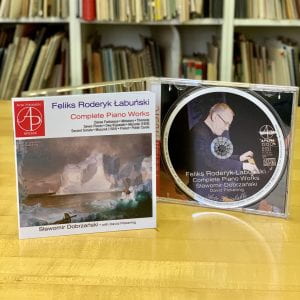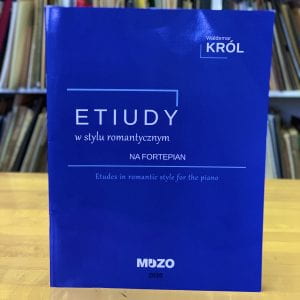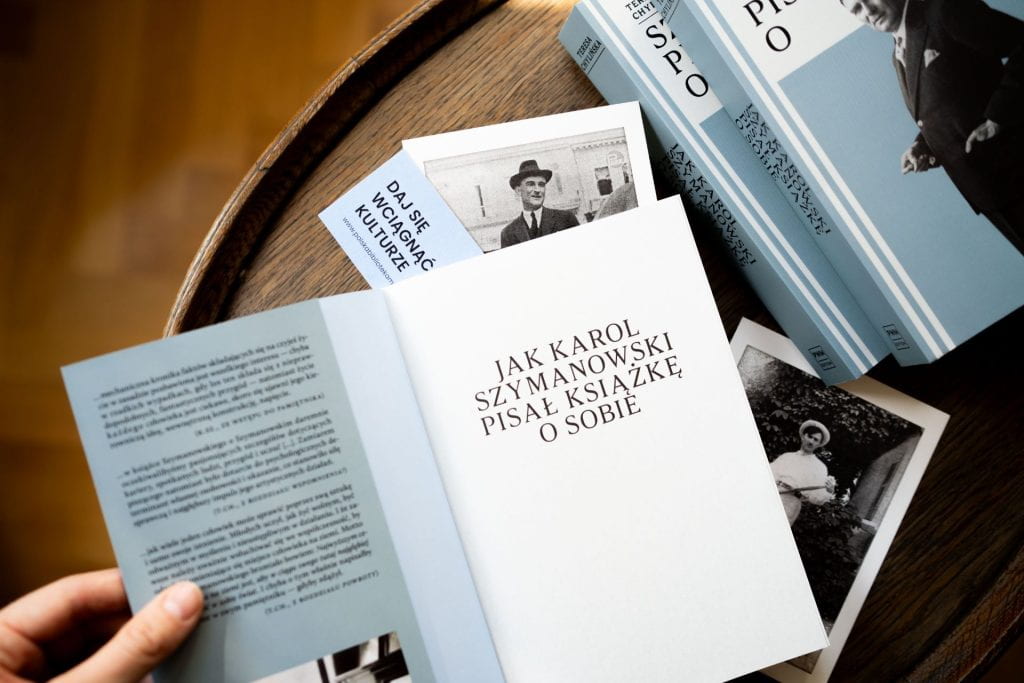An Encore by Chylińska!
The month of November at the Polish Music Center began with a few very welcome gifts. The first and the most fascinating among them is yet another look into Karol Szymanowski and his life by the indefatigable expert-biographer, Teresa Chylińska. Recently published by PWM, Chylińska’s latest opus, Jak Karol Szymanowski pisał książkę o sobie [How Karol Szymanowski Wrote a Book About Himself] is a miracle of scholarly dedication and patient sleuthing work.
The author notes wisely in her book jacket that:
Although he didn’t manage to write a book about himself, we don’t need to invent stories about him—it will suffice to read his voluminous correspondence carefully and intelligently (1775 Szymanowski letters and 2101 letters to him) to clearly see the outline of his persona as if written in invisible ink. So we shouldn’t complain about the lack of facts. What, therefore, is the root of the complaint that “there is no memoir by Karol himself”? It might perhaps be one quote from his unfinished Introduction, “I decided to begin my reminiscences at the moment of my final decision to return to Poland at the end of 1919.” Does it not announce the most important unknowns in the artistic challenge Szymanowski presented to himself? And this is the most interesting and worthy of finding, so we’re inviting our readers to a joint voyage of discovery.
Indeed, Chylińska’s latest book is a voyage of discovery or, more precisely, many welcome discoveries. Somehow, all that is generally known about Szymanowski appears in a new context and acquires a new perspective. Szymanowski of course was a literary talent par excellence, and many of his writings (letters, articles, polemics, libretti) are extensively quoted in Chylińska’s book alongside her wise and learned observations.
Over the course of some 500 pages, which open with the Szymanowski’s own Introduction to the memoirs he never wrote, Chylińska takes her readers on a chronological journey that begins with a rarely-asked question: How did Szymanowski end up in Ukraine? It continues with the most important events and works written before his permanent return to the newly-independent Poland in 1919. His “hard landing” in Warsaw included staying initially with friends in Warsaw, since Szymanowski and his family were all deprived of their property and ancestral home in what became Soviet Ukraine after World War I. The remaining 18 years of Szymanowski’s life emerge in Chylińska’s work as a long chain of peregrinations across Europe and America, with concerts and premieres and only one permanent address in Poland during the years 1930-1935 in Zakopane’s Villa Atma.
Richly illustrated with photographs and maps, this trade paperback should become a steady and loyal companion to anyone deeply interested in Szymanowski, his music and his life.
Łabuński and Król Via Dobrzański

Pianist, scholar and longtime friend of the PMC, Sławomir Dobrzański, has devoted his talent and research to many of the lesser-known Polish composers throughout his career. His latest CD issued by Acte Prealable (AP 0566) features complete piano works by Feliks Roderyk Łabuński (1892-1979), a pianist who attended Warsaw Conservatory and studied with Witold Maliszewski.
After moving to Paris, Łabuński became a student of Nadia Boulanger and Paul Dukas. Łabuński co-founded the Society of Polish Musicians in Paris in 1927 and served as its deputy director and director during the years 1929-1933. After a brief return to Poland, Łabuński emigrated to the U.S. in 1936 with his American sculptor wife, Dorothea Boit-Giersach. For almost two decades starting in 1945, Łabuński taught composition at the Cincinnati Conservatory of Music. The catalogue of his compositions includes two symphonies and other orchestral works as well as chamber music and vocal-instrumental works.
Dobrzański’s performances on this CD include Łabuński’s Dance fantasque, Two Kujawiaks, Mazurkas (from 1924 and 1928), Four Miniatures, Second Sonata, as well as Seven Pieces for children. In addition, there are his Prelud and sets of Polish Carols that were recorded by organist David Pickering.

Another November gift from Dr. Dobrzański is a MUZO Publishing edition of Seven Etudes in Romantic Style by Waldemar Król. Born in 1974, Król studied at Kraków Music Academy where he majored in piano and at Katowice Music Academy where he pursued composing and arranging. Since 2004 he has been teaching at the Rutkowski Music School in Kraków. Król’s catalogue of works includes many pieces for students, as well as a variety of arrangements, songs, and popular music.
According to the composer’s note in the introduction, “… these etudes are reminiscences of the style brillante, salon concerts, and virtuoso recitals.” Glancing at Król’s etudes it becomes evident that Chopin’s attainment in this genre must have served as the guiding light for this set. With a set of pianistic challenges, Król’s Etudes should become a welcome addition to the repertoire of many aspiring keyboard virtuosos.
As always, many thanks to all our donors. Dziękujemy!
The Polish Music Center is entirely donation-based, for everything from our operational budget to the growth of our vast library and rare archives. If you’ve found our website interesting and helpful, please visit our Donations Page. There you can donate directly to the PMC, knowing that a gift of any amount helps keep our website flourishing and our doors open. Thank you!
